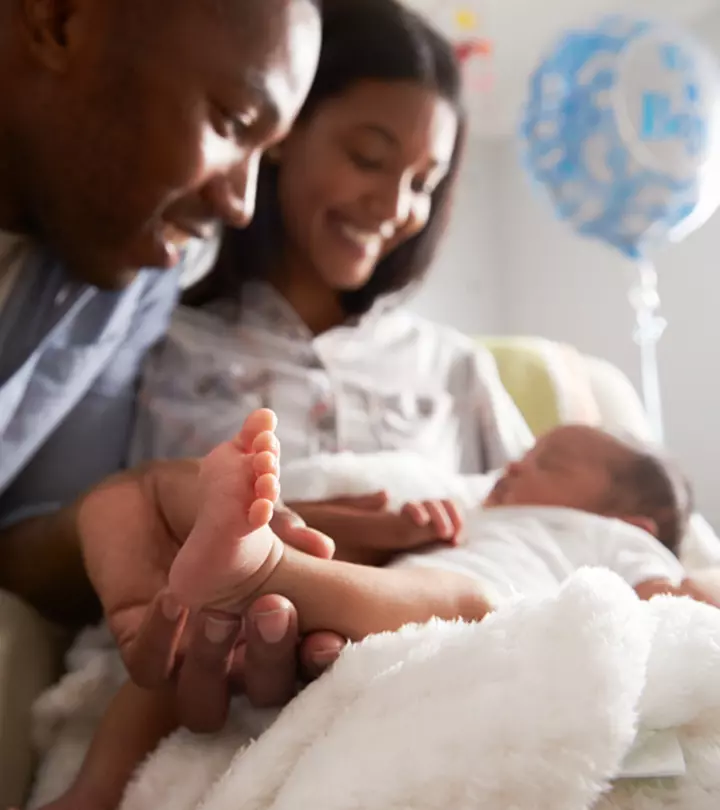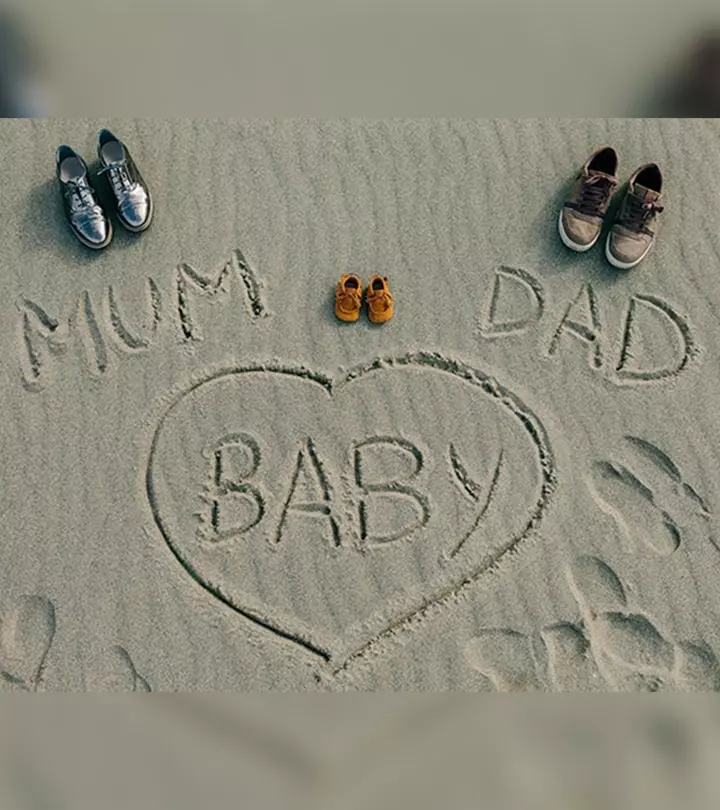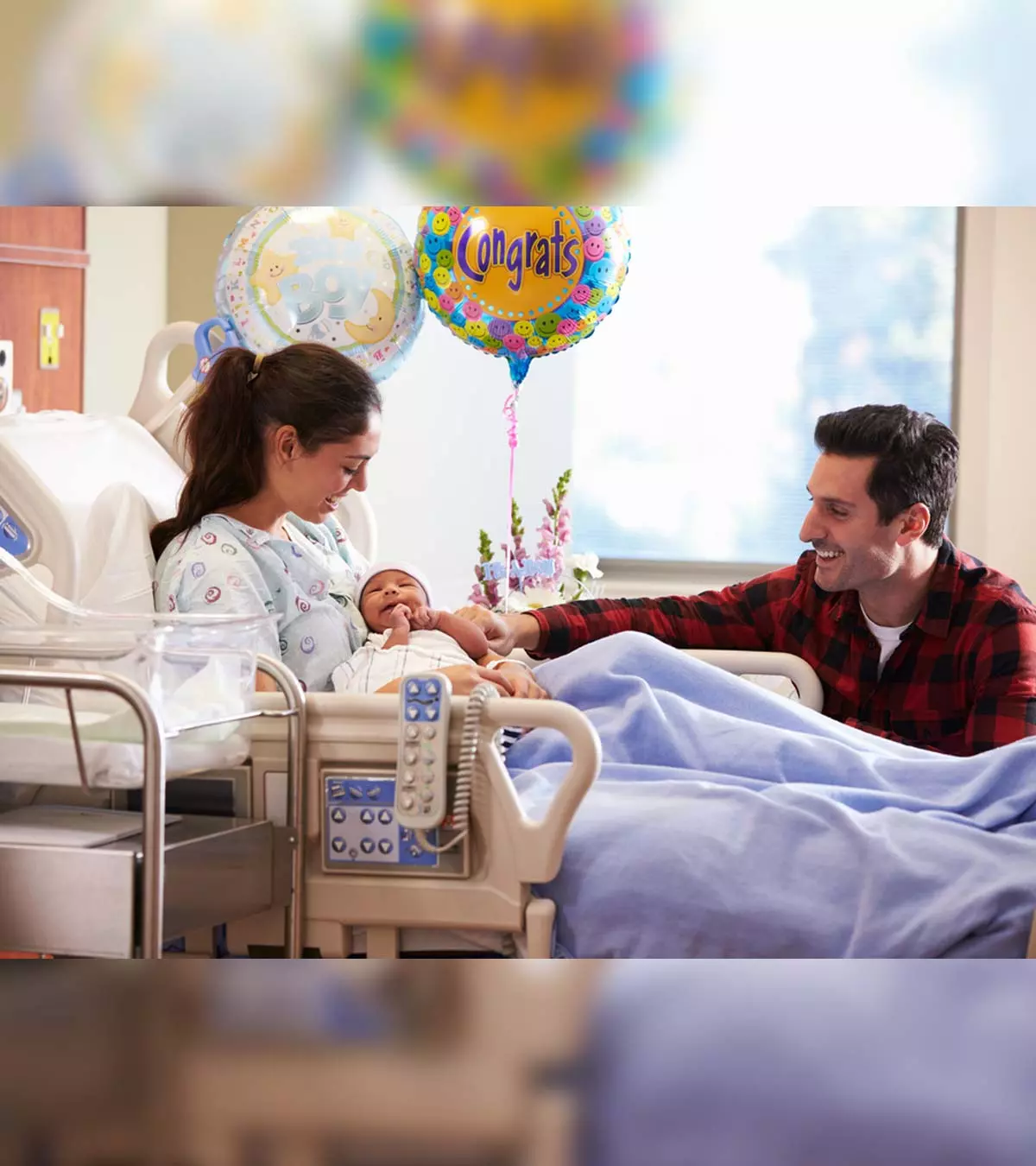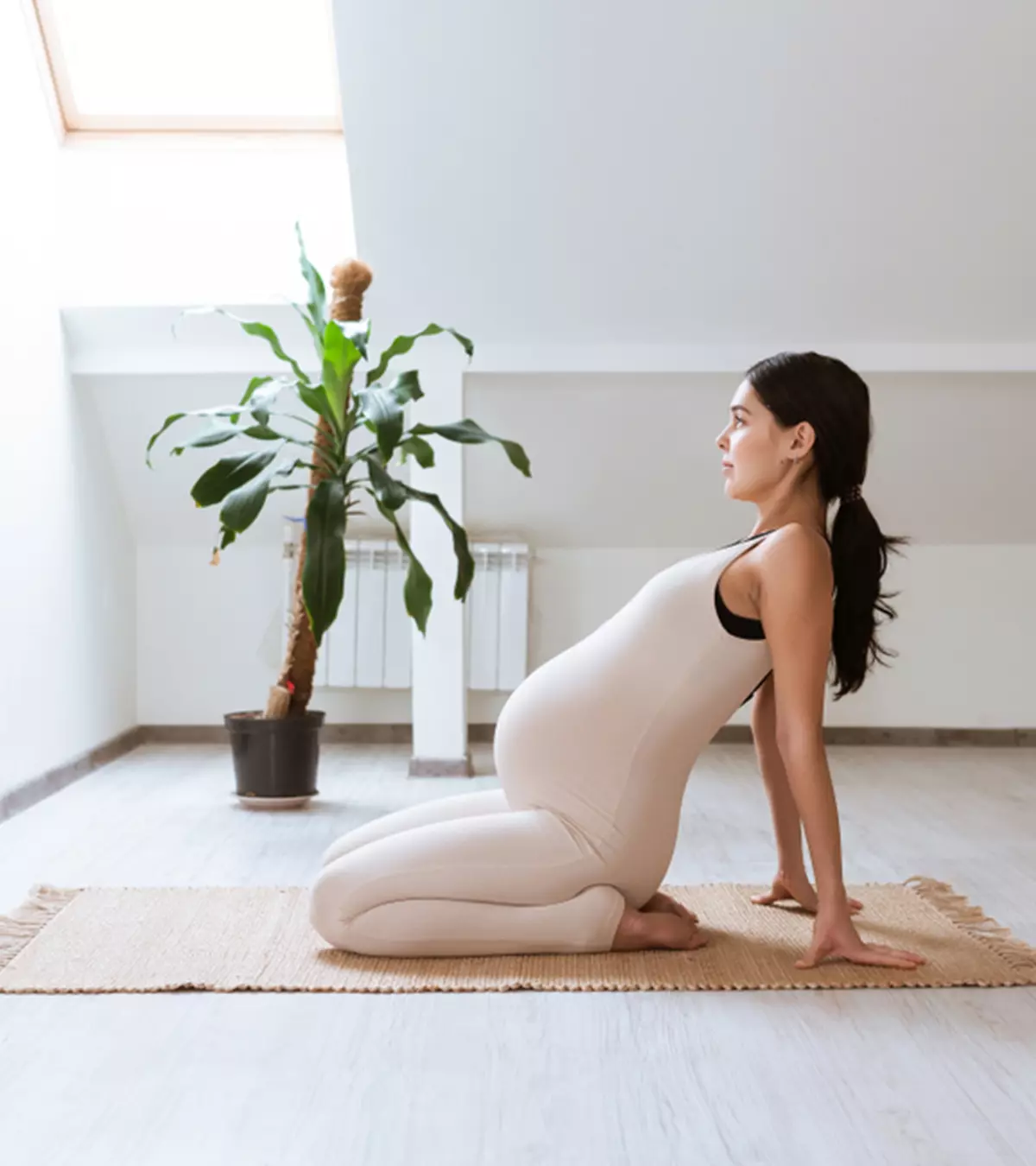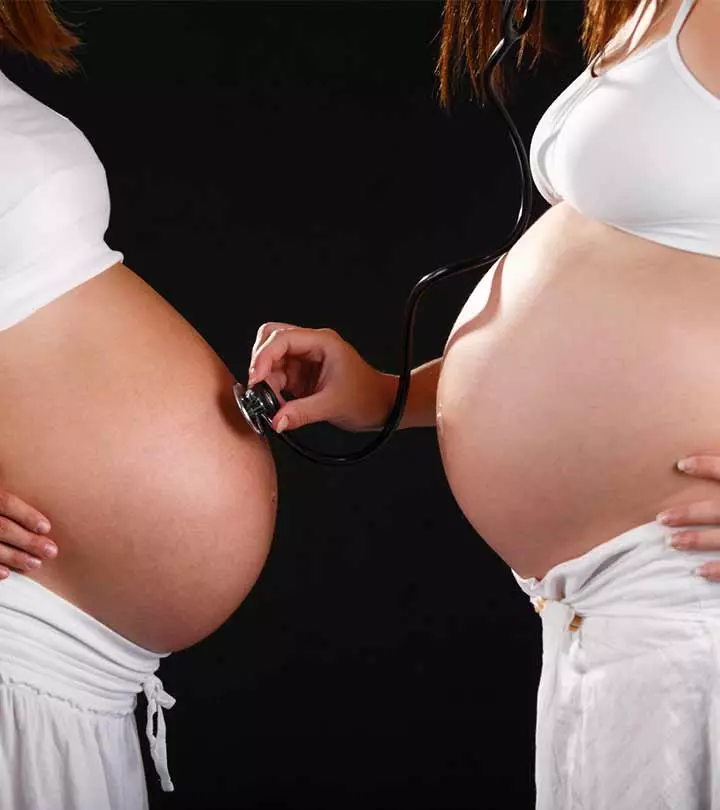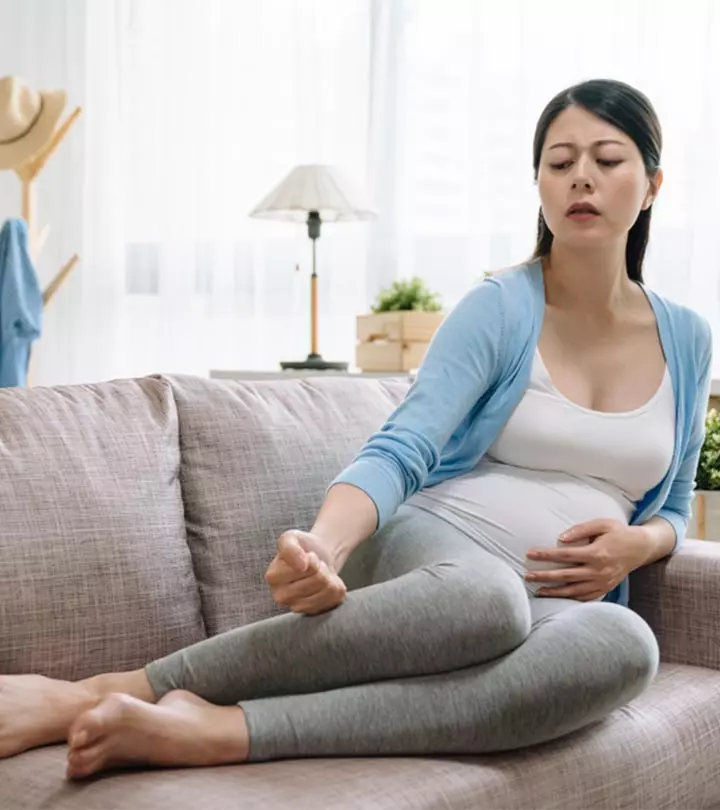
Image: Shutterstock
The nine months of pregnancy can take a toll on your body. This is especially the case of your bones which bear the brunt of the additional weight. Pregnancy requires your body to be at its best, and additional demand is placed on your bones at this time. A lot of women face problems with their bone health during this time, and some are at risk for issues such as osteoporosis, reduced bone density, and fractures. In addition to your bone health, you also have to take into consideration the skeletal structure and bone health of the little one in your womb (1).

You cannot compromise on your bone health during your pregnancy. Unfortunately, the awareness and know-how of bone health are comparatively low. It’s about time that expecting mothers as well as their partners and families try to learn more about how to maintain bone health. This is why we have listed a few things to follow so you and your baby can enjoy healthy bones:
Make Sure You Get Enough Calcium

Image: Shutterstock
When it comes to bone health, calcium is often on the top of the list of nutrients that you need to consume. According to the World Health Organization and The National Institute of Health, on average, a woman will require close to 1500 to 2000 milligrams of calcium on a daily basis when pregnant. This will help keep your bones in good condition and take care of your baby in your womb (2).
It is essential to keep in mind that you aren’t the only one who needs all that calcium; your baby does too. A growing fetus needs calcium in order to develop and maintain strong bones and teeth. In fact, if there is a lack of calcium intake during pregnancy, the fetus tends to draw all the necessary calcium from the mother’s bones. This is observed mainly in the last trimester of pregnancy (3). A deficiency of calcium during the fetal and infancy stages can also have long-term effects on the baby that continue right up to adulthood.
Get Your Daily Dose Of Sunshine
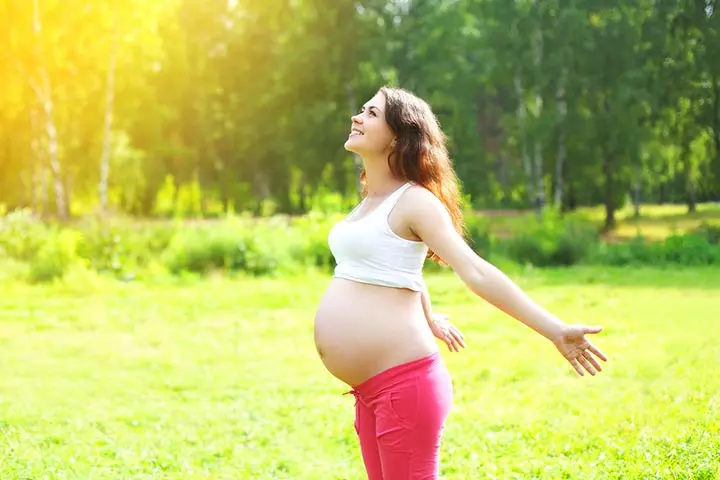
Image: Shutterstock
When you spend time outdoors in the sun, you receive a good amount of Vitamin D. Now, in case you’re wondering what that has to do with protecting and improving your bone health while pregnant, here’s your answer: Vitamin D can help your body absorb calcium. We’ve already mentioned that calcium is good for bones, but what good is it if your body can’t absorb all that calcium? So, make sure you get enough exposure to the sun. The best and safest time to step out in the sun is before ten in the morning and after four in the afternoon (4). In addition to vitamin D, taking a stroll outside also lifts our mood and rejuvenates us.
Incorporate A Good Workout Regime
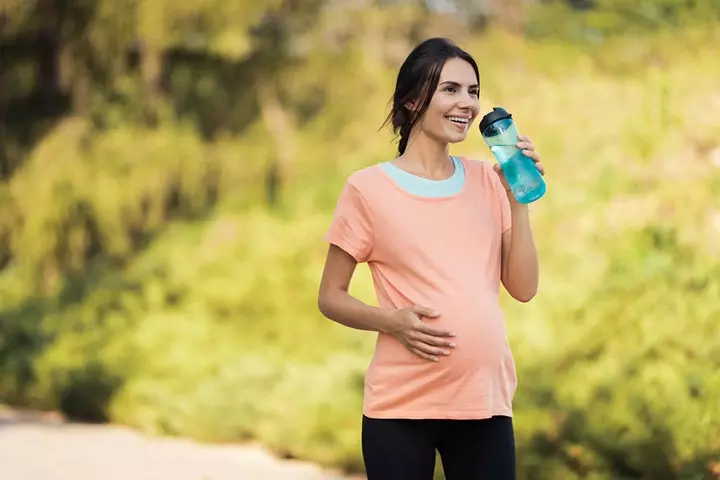
Image: Shutterstock
There is a common misconception that you shouldn’t do any physical activity and exercise if you’re pregnant. This isn’t true. In fact, medical professionals suggest the opposite! According to The American College of Obstetricians and Gynecologists and the Centers for Disease Control and Prevention, pregnant women should make it a point to indulge in at least 150 minutes of physical exercise on a weekly basis. They could do activities that are light to moderate intensity.
Regular exercise can keep your body healthy, and the same can be said for your bones as well. Workouts can help make your bones denser and help with your posture too. It can also help maintain a healthy weight and prevent excess weight gain. Unnecessary weight gain, on the other hand, can lead to a reduction in bone density. Having said that, make sure you exercise safely. There may be a few workouts that you should avoid when pregnant, particularly vigorous exercise. Doctors often suggest walking, swimming, yoga, and mild aerobic exercise during pregnancy (5).
Eat Healthy And Keep Yourself Hydrated

Image: Shutterstock
Eating a well-balanced diet has been a golden rule for ages, and there’s good reason for it — it is the one thing you cannot compromise on when it comes to good health. You’re probably taking plenty of prenatal vitamins and supplements, but nothing can come close to eating a well-balanced, nutritious, home-cooked meal. It would be best if you had adequate amounts of carbohydrates, fats, proteins, and dairy.
In addition to this, you also need to have plenty of water to keep yourself hydrated. All of this can contribute to maintaining bone health during pregnancy. Vitamin D and calcium are not the only two nutrients that your bones need. It also requires other nutrients. For example, Vitamin K helps with the formation of bones, magnesium is necessary for the absorption of calcium and Vitamin D, and omega-3-fatty acids are essential for bone density (6).
Smoking Is A Strict “No”

Image: Shutterstock
Smoking is never recommended during pregnancy as it can cause a lot of health complications for your baby. Many people are aware of this fact, but what isn’t common knowledge is that smoking can have a negative impact on your bones as well. Cigarette smoking can reduce bone mass, lead to brittle and porous bones, increase the risk of fractures, and come in the way of the formation of new bones. If you are habituated to smoking, now is the time for you to stop. It is also recommended to avoid second-hand smoking, so if someone smokes around you, move away or request them to smoke elsewhere (7).
Bones play a vital role in being able to maintain our overall health. This is all the more important during the crucial months of pregnancy where the health of both the mother and child are in line. With timely and simple steps discussed in this article, you can ensure that bone health doesn’t cause you any issues during the pregnancy. If you have a history of bone-related problems, talk to your doctor about it so they can provide the necessary interventions to prevent injury and risks. Have you gone through episodes where you had to deal with bone health issues? Share your experiences or advice in the comments section below.
References
- Calcium and bone disorders in pregnancy
https://www.ncbi.nlm.nih.gov/pmc/articles/PMC3354840/ - Calcium
https://ods.od.nih.gov/factsheets/Calcium-HealthProfessional/ - Pregnancy Breastfeeding and Bone Health
https://www.niams.nih.gov/health-topics/bone-health-and-osteoporosis - Vitamin D and Bone Health; Potential Mechanisms
https://www.ncbi.nlm.nih.gov/pmc/articles/PMC3257679/ - Exercise During Pregnancy
https://www.acog.org/womens-health/faqs/exercise-during-pregnancy - Nutrients For Bone Health
https://americanbonehealth.org/nutrition/nutrientsforbonehealth/ - Smoking and Bone Health
https://www.niams.nih.gov/health-topics/bone-health-and-osteoporosis
Community Experiences
Join the conversation and become a part of our nurturing community! Share your stories, experiences, and insights to connect with fellow parents.

